The state election campaigns have officially started. It’s election season – the promises and the goodies coming out are inevitable. It has been common for decades. Rather than policies, the practice has been to entice voters financially.
This week’s announcement of RM100 and payments to civil servants and civil servant retirees are not new.
That they are coming from the federal government during state polls speaks to how these polls are being interpreted as a reflection of the performance and popularity of Prime Minister Anwar Ibrahim’s government even by the government itself.
With the economy the main issue facing voters, concerns with the cost of living are at the forefront.
What differentiated this week’s announcement was that the financial incentives were accompanied by a broad policy platform on the economy, one that hopefully will stimulate much-needed discussion on the main issue that Malaysians (and those who are voting) are concerned with.
What is not fully appreciated, however, is that this election is about state governments, their leadership and governance.
The Anwar (above) government’s approach has been to overshadow the performance of the state leadership and their records in office with a focus on the federal government’s popularity.
This seventh piece in my election series looks at the governance of the six states with a particular focus on the initiatives the state governments have put in place for welfare, health, housing, and supporting local businesses.
There have been considerable state-led initiatives for decades, from addressing coastal communities to scholarships.
Since Pakatan-led governments in Penang and Selangor from 2008, there has been a widening of programmes at the state level.
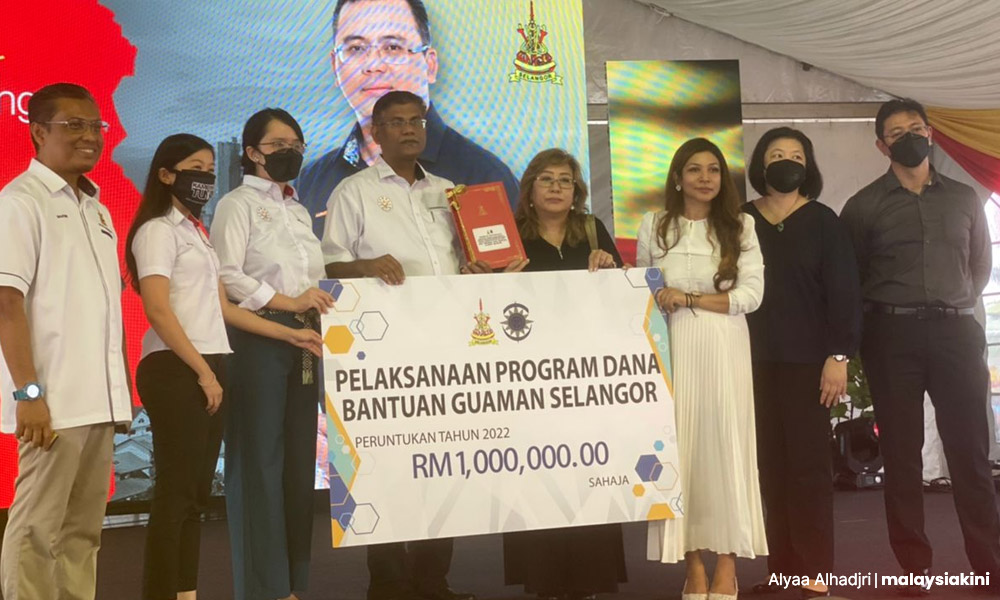
Other governments have followed. PAS governments, notably that of Terengganu, have also expanded their own initiatives, in keeping with their electoral promises in 2018 and the broad trend of increasing deliverables at the state level.
The drivers of these changes are not just changes led by state leaders and different political parties/coalitions. State social policies have expanded considerably during the Covid-19 pandemic and with greater decentralisation of power to state governments.
What has emerged is a second level of social assistance and new programmes, notably around housing and to a lesser extent business and education.
While states with access to greater funding have been able to introduce more programmes, new priorities by governments and the need to earn performance legitimacy have spurred an expansion of state governance.
Where there has been more dynamic leadership and pro-active state programme development, there has been an increase in public engagement and popularity of the state government – a dynamic that will be tested at the coming polls.
A look at welfare
Research on the different initiatives at the state level shows not only an increase in the number of state-based initiatives but an embrace of the role that the state governments play in providing social assistance.
The list of programmes is derived from an analysis of the state government websites and interviews but should be seen as preliminary as more research is necessary to analyse the effectiveness of the different programmes.
Many initiatives are listed under other programmes, so the lists below may have some gaps.
They should be interpreted as providing insight into the range of state-led programmes. They should not be seen as exclusive of welfare programmes carried out in the state, as there are also federally funded and directed programmes ongoing.
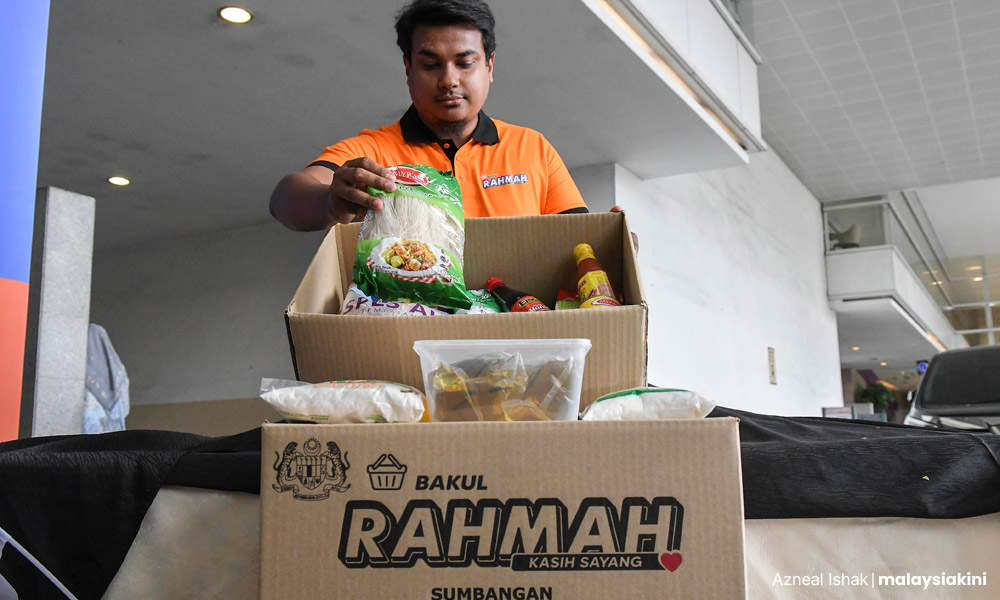
Generally, state-led welfare programmes target specific communities. This extends from the practice of identifying vulnerable communities and providing support. From single mothers to the elderly and children, programmes generally centre on providing funds.
What has evolved in recent years is assistance for specific needs of communities, such as childcare assistance and support for caregivers.
Of all the states facing elections, Selangor has the broadest set of state-led initiatives, but it should be noted that all of the states have important, often lifesaving, programmes in place.
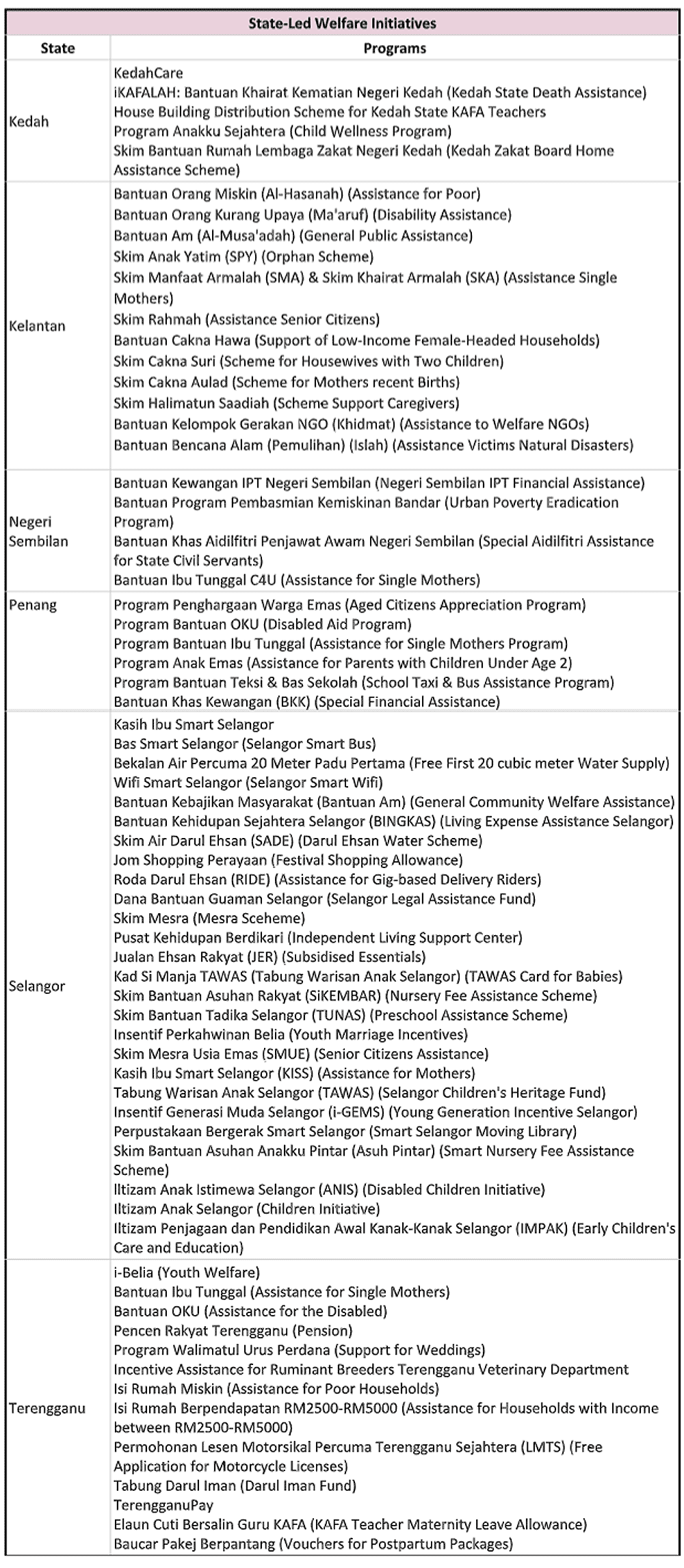
A look at health
Beyond social welfare, state governments have expanded support for health. This includes financial assistance for medical care and programmes that support communities needing treatment, notably dialysis.
Recently, the scope of initiatives includes support for mental health treatment in Selangor.
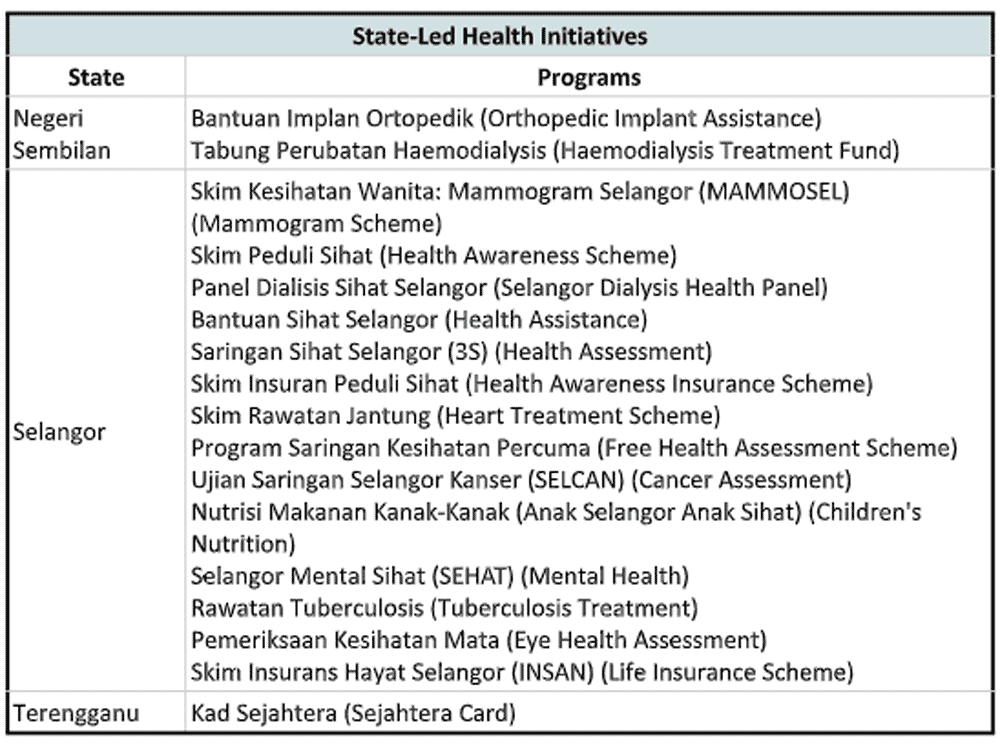
While uneven, state governments have taken the need to fill the gaps in healthcare provision more seriously.
This has been accompanied by efforts to increase knowledge of health and move Malaysians toward healthier lifestyles and prevention of illness. In this regard, here too, Selangor has led the way, but other states are not far behind.
Supporting education and entrepreneurs
State-led interventions have extended to scholarship and support for small businesses. In places like Kedah, support is available for scholarships to religious schools, while in Kelantan, this is broader for all schools.
University students from their individual states can get loans and scholarships if they meet the criteria. The qualifications vary, but most programmes focus on those from poorer socio-economic backgrounds and have needs-based qualifications.
Terengganu has an interesting focus on building local talent.
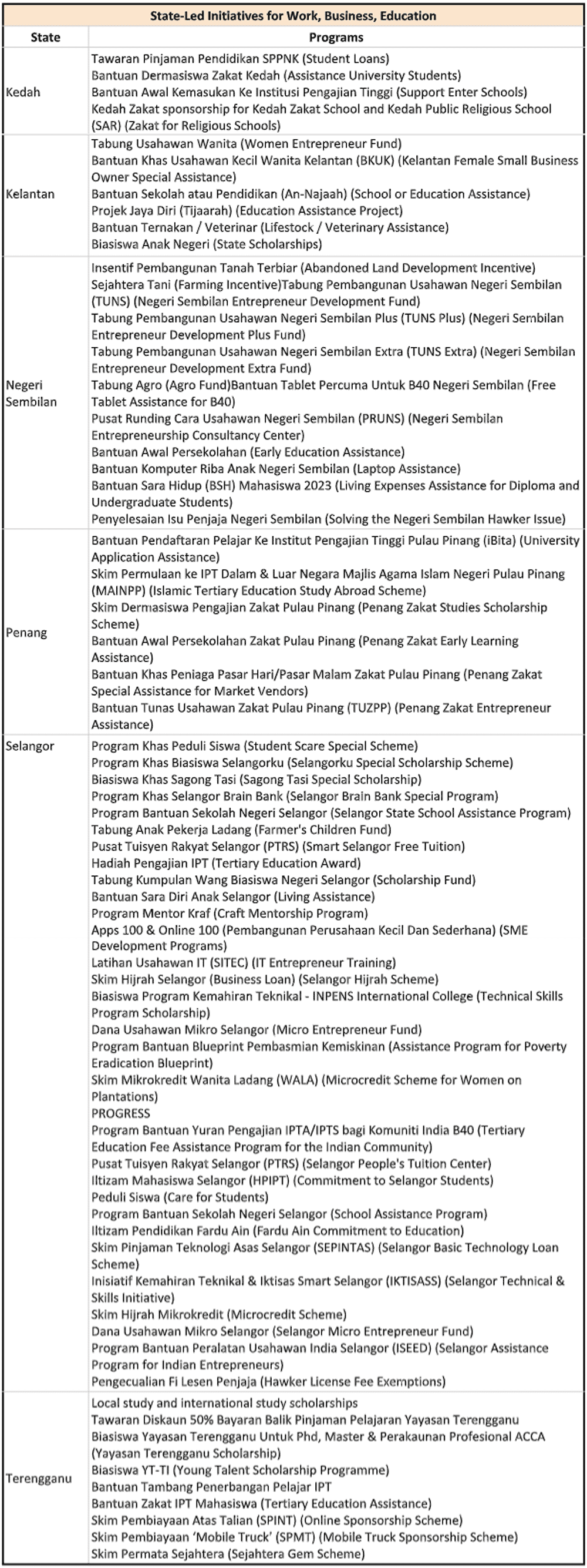
A look at housing
Another important area is housing. In recent years, there has been funding for low-cost housing, notably for younger families. This has become prominent in Penang and Terengganu, where the housing programmes have created new communities.
Selangor has the most housing programmes and spending, but the demand is often higher than the housing available.
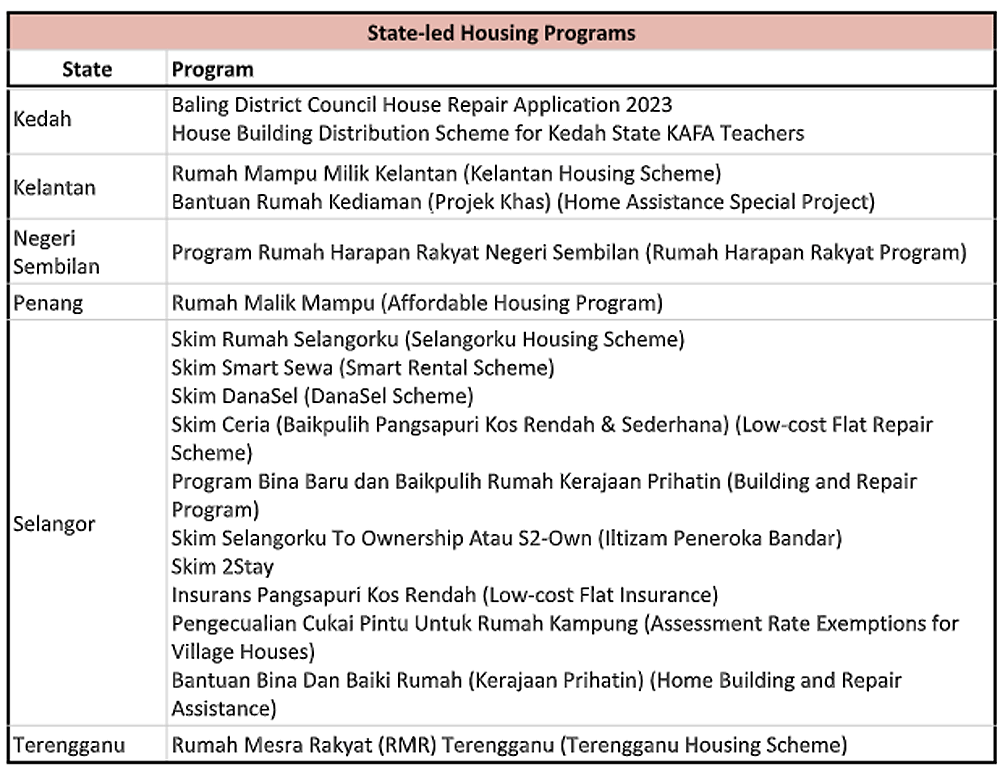
Each of these areas shows important state-led interventions. The aim of providing this overview is to highlight the significance of state governance and its growth.
Much of what is ongoing in terms of policy is overshadowed by federal government focus in the state polls campaign. With all the political noise around trying to show performance, the actual programmes in place and state governance generally are being ignored.
For those in the states themselves, being affected by these programmes, they are essential and life-changing. Who manages them and how they are implemented does (and will) matter.
The state leaders who are leading the expansion of state programmes deserve recognition. It will be up to the voters to decide if this recognition is given. - Mkini
BRIDGET WELSH is an honourary research associate of the University of Nottingham, Malaysia’s Asia Research Institute. She is also a senior research associate at the Hu Fu Centre for East Asia Democratic Studies and a senior associate fellow at The Habibie Centre. Her writings can be found at bridgetwelsh.com.
The views expressed here are those of the author/contributor and do not necessarily represent the views of MMKtT.

No comments:
Post a Comment
Note: Only a member of this blog may post a comment.